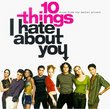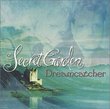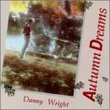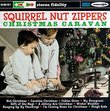| All Artists: Gioachino Rossini, Riccardo Chailly, Juan Diego Flórez, Orchestra Sinfonica e Coro di Milano Giuseppe Verdi Title: Juan Diego Florez ~ Rossini Arias Members Wishing: 1 Total Copies: 0 Label: Decca Original Release Date: 1/1/2001 Re-Release Date: 1/8/2002 Genre: Classical Style: Opera & Classical Vocal Number of Discs: 1 SwapaCD Credits: 1 UPC: 028947002420 |
Search - Gioachino Rossini, Riccardo Chailly, Juan Diego Flórez :: Juan Diego Florez ~ Rossini Arias
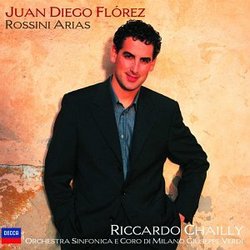 | Gioachino Rossini, Riccardo Chailly, Juan Diego Flórez Juan Diego Florez ~ Rossini Arias Genre: Classical
This disc by the rising young Peruvian tenor Juan Diego Flórez is a winner. He has a light lyric tenor of quality, stunning coloratura technique, and a real feeling for the Rossini style. He shines in these bravura ar... more » |
Larger Image |
CD DetailsSynopsis
Amazon.com This disc by the rising young Peruvian tenor Juan Diego Flórez is a winner. He has a light lyric tenor of quality, stunning coloratura technique, and a real feeling for the Rossini style. He shines in these bravura arias, scattering high Cs and Ds with abandon. There aren't many tenors these days who can fearlessly negotiate the perils of arias like "Cessa di piu resistere" from The Barber of Seville with such aplomb. Nor are there many who can capture both the pathos and the fevered intensity of "Oh fiamma souave" from La donna del lago. Even those who might wish for a warmer, sweeter sound in the bel canto repertory than Flórez's brighter, more brilliant tones should welcome this auspicious solo debut. He's helped by the sure hand of Riccardo Chailly at the helm, ensuring stylistically sympathetic performances. --Dan Davis Similarly Requested CDs
|
CD ReviewsFlorez Sings Rossini: A Minority Report David A. Kemp | Plano, TX USA | 06/10/2002 (4 out of 5 stars) "I'm calling this review a minority report because I read all the other reviews of this CD here at amazon.com (almost all of them keenly enthusiastic) before writing this one, and I have a different take on it from them. So be forewarned, if you are a rabid Florez fan, that I am trying to provide a sober, balanced assessment, not an enthusiast's rave, and that this review therefore probably won't be for you.I'd like to add up what I hear as the strengths and weaknesses of this CD. On the plus side, we have in this youthful (born in 1973) Peruvian tenor a fresh young voice singing unfamiliar repertoire; this in itself is a refreshing change from the "standard" operatic tenor recital of warhorse arias--none of that here. In addition, Florez sings cleanly, with reliable intonation, and in a musicianly manner-no "cheating" using aspirates or glottal clicks in the florid passages in which this music abounds. The voice is certainly a supple one with a remarkable facility in this demanding music, which he sings with commendable assurance and verve, even panache, as well as evident enjoyment. And he has an extraordinary extension at the top of his voice: high Cs and Ds hold no terrors for him. This is a rare type of tenor voice in our era, and a voice with this facility at the extreme top is rare in any era. The distinguished vocal critic and historian John Steane has written of Florez's singing, "All was accomplished with marvelous fluency and clarity of articulation. . . . The young voice is firm in definition and even in its production; the tone, diamond-bright, is also capable of sweetness. The ornamentations are graceful and unostentatious." In addition, Decca/London provides its usual exemplary sound, and I can hear nothing to fault in Chailly's or the orchestra's or chorus' contributions (the recording was made in Milan in May 2001). On the debit side to my ears is the quality of the voice itself: I find it not a beautiful voice; it has a rather dry, whitish quality, lacking in roundness or richness or resonance, and is not particularly attractive to my ear (others may disagree). The tone is tight and hard, and as it climbs the scale toward the heights it becomes tighter and harder. The high Cs and Ds are tight as a drumhead and hard as nails, strident, even piercing- some of them almost resemble accurately pitched screams. He can bang them out fearlessly, yes, but they are hardly pleasing to the ear. The voice often has a steely quality; there is no "juice" in it, no cushion; I find the sweetness Steane noted in short supply here. This is a completely different sort of voice from the conventionally beautiful, "juicy" Italianate lirico/spinto operatic tenor voice typified by Caruso, Gigli, Bjoerling, the young Di Stefano. It cannot compare with them in beauty of tone or in expressiveness, but then they cannot do what Florez does here.Further limitations, then, are a limited range of expressiveness or the ability to "color" or shade the voice expressively (this limitation is inherent in this type of voice, I believe), and a limited dynamic range (Florez does very little soft singing here, and there isn't a true pianissimo in the entire recital). In addition, while I admire and am impressed by his obvious facility and accuracy in florid singing, it is all pretty much of a single kind: he sings connected series of notes in rapid passagework quite well and securely, without aspirates. But he attempts no staccato singing, and he has no trill (at least I hear neither on this CD--both once considered requirements of a truly accomplished florid technique. The bottom of the voice sounds weak--a fair tradeoff, one might concede, for its spectacular extension at the top. Finally, there is a monotonous sameness to Florez's approach to and handling of the material here. But before criticizing his failure adequately to characterize and differentiate his roles here, it is well to note that these arias are virtuoso display pieces first and foremost; psychological and dramatic depth and complexity are certainly not what they are about. This CD, no matter how accomplished the singing, demonstrates a listening problem some will have with this kind of recital: a lengthy succession (59:07) of florid Rossini tenor display pieces, one after the other, all sung by the same voice, simply grows wearisome to the ear. This is one of the inherent problems of the solo singer recital, exacerbated here by the sameness of the material sung, the sameness of the approach to the material, and the limitations in dynamic range and the palette of expressive coloring of this voice.In conclusion, here is an interesting, challenging, and offbeat recital, but it will not be everyone's cup of tea, and is best taken in small doses instead of all at one sitting. Mr. Florez has an unusual and intriguing voice of a type that is certainly rare today, and his upward extension is pretty remarkable. His facility with florid music is refreshing and exciting; this kind of tenor singing had almost become a lost art. It's good to have a fresh young tenor on the operatic scene who can bring back and adequately perform these little-known and difficult arias. And it is rare enough to find a tenor today who can do what Florez can that perhaps it is ungrateful to complain about his limitations.Rare but not unique: Florez isn't the only modern Rossini tenor around, and those who are interested in this repertoire might also like to investigate the recordings of Rockwell Blake and Bruce Ford, both of whom have performed Rossini extensively and recorded his tenor music." Superb music-making of the finest order drvox | Nashville, TN | 04/06/2002 (5 out of 5 stars) "Like his fellow countryman Luiga Alva, Peruvian tenor Juan Diego Florez is the possessor of that rara avis, the Rossini tenor - a vocal type noted for its brilliance and flexibility in the highest tessitura of the male voice. Mr. Florez sounds positively joyous in this fiendishly difficult music, full of technical passages replete with scales, leaps and trills, which the tenor meets with pinpoint accuracy: in tune and with perfect rhythmic articulation. In the more somber selections, his voice takes on a poignant quality, with a graceful approach to phrasing, a seamless Italianate legato and a palette of subtle vocal colorings. In addition, Mr. Florez has a singing personality which matches this repertoire: masculine, aggressive and full of bravura and vitality. Despite a slight tendency to spread in the stratosphere and an ever-present tendency to a bit of nasality, the voice is easily the most beautiful to be presented before the public in modern times in this repertoire - warm, round and evenly produced. I look forward to his future." Outstanding Rossinian Tenor! M. Ramos | 01/29/2002 (5 out of 5 stars) "This CD is simply stunning. Juan Diego Flórez, a young Peruvian tenor, is a revelation on this collection of extremely difficult Rossini arias. Flórez handles all the scales and very high tessitura with great facility, even adding brilliant ornamentations and stunning high C's and D's to the vocal line. The sound is always clear and bright with no sign of effort and without recurring to aspirates or other tricks in order to handle the difficulties of the music. These remarkable qualities are displayed on every aria of this recording: it is a real pleasure to hear "Cessa di più resistere" from IL BARBIERE DI SIVIGLIA done with such charm and care for the words. Ricardo Chailly brings his usual expertise in Rossini, conducting the Orchestra Sinfonica e Coro di Milano Giuseppe Verdi with vivacity and bringing good support for the soloist. This CD will bring hours of pleasure to all fans of the music of Gioachino Rossini. We hope to hear much more Rossini from Juan Diego Flórez in the near future."
|

 Track Listings (8) - Disc #1
Track Listings (8) - Disc #1